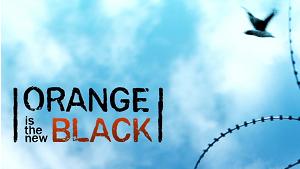
(We’re trying something new here at Go, See, Talk!: we’re talking about TV now. GST will remain a primarily movie-oriented outlet, but we’re expanding our brand and slowly starting coverage on the television shows that we’re interested in the most.)
I’m not going to pretend that I don’t have a tiny bias in favor of Orange Is the New Black‘s continued success as the seventh Netflix original series; I love Weeds, half of it anyways, and I have a completely random personal connection to Jenji Kohan’s latest endeavor to boot*. But when have I ever allowed my biases to keep me from singing the praises of the movies and television shows that I love? (And aren’t our biases as critics kind of meant to be celebrated or projected on some level?)
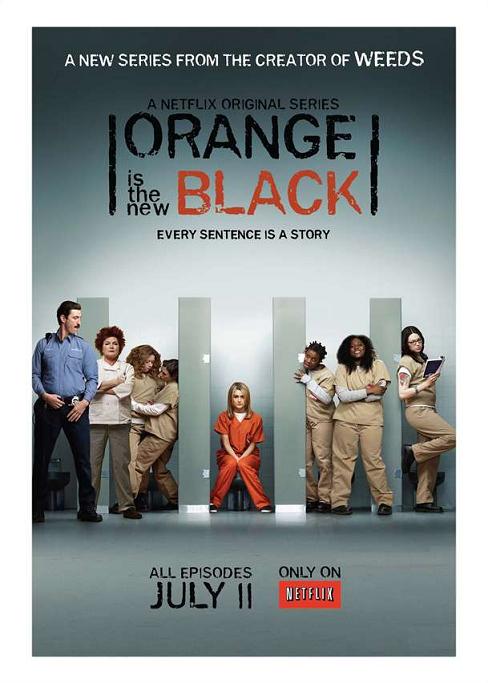 The underlying point here is that however inclined I am toward piling laurels on Orange Is the New Black, the series deserves to be seen all on the strength of its own merits. It’s good. Really good, in fact, and a huge rebound for the talented Kohan, who hasn’t had a hit in what seems like forever and a day. (The last few seasons of Weeds met with mixed-to-chilly reception.) In a lot of ways, Orange sees Kohan going back to basics, drilling down to what makes the first few seasons of Weeds so thoroughly watchable and shockingly resonant**: humanity, compassion, black humor, and well-rounded, interesting characters.
The underlying point here is that however inclined I am toward piling laurels on Orange Is the New Black, the series deserves to be seen all on the strength of its own merits. It’s good. Really good, in fact, and a huge rebound for the talented Kohan, who hasn’t had a hit in what seems like forever and a day. (The last few seasons of Weeds met with mixed-to-chilly reception.) In a lot of ways, Orange sees Kohan going back to basics, drilling down to what makes the first few seasons of Weeds so thoroughly watchable and shockingly resonant**: humanity, compassion, black humor, and well-rounded, interesting characters.
And, of course, a female-driven narrative that centers around culture shock, class naivety, and the seedy underbelly of the drug world. There’s probably someone out there willing to argue the similarities between Weeds‘ protagonist, Nancy Botwin, and Orange‘s unfortunate heroine, Piper Chapman, as an overwhelming flaw, but the details here matter; the family resemblance Orange shares with Weeds can at best be described as “passing”. Dope peddling informs the latter’s plot progression in total, and serves only as the foundation of the latter. Piper simply treats drug running with her girlfriend, Alex (Laura Prepon), as a cheap thrill before realizing she’s over her head and getting out.
Unsuccessfully, that is. Orange is the New Black doesn’t really care about Piper’s past insomuch as it shapes her present. It turns out assisting an international drug ring for fun (and for love) is the sort of thing that comes back to haunt you, as it does Piper many years after breaking up with Alex, quitting the biz, and becoming engaged to the affable, unambitious Larry (Jason Biggs), who has no knowledge of his fiancee’s previous lesbian relationship or experience with drug running. But this isn’t how Orange introduces us to Piper; instead, we meet her in an uncomfortable moment as she showers in the prison where Kohan anchors the better part of her story.
Each installment of Orange features flashbacks or cutaways to characters outside of the penitentiary, but this is a show that deals with the consequences of crime by cutting closer to reality instead of delving into a more sensational and fantastical approximation of it. Not that Orange can be described as verite storytelling, per se; the series finds its basis in Piper Kerman’s memoir of the same name, but deviates from that text by invoking the laws of dramatic license. That means the characters Piper (embodied in the show by Taylor Schilling) meets during her time in the slammer are more colorful, and the situations she finds herself in are more theatrical.
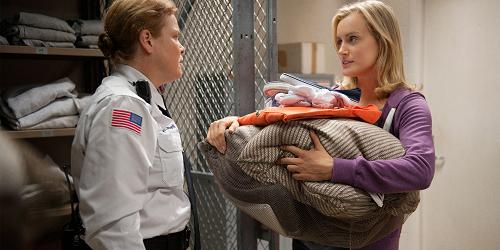
It doesn’t, however, mean that Kohan deigns to fall back on prison drama cliches. Litchfield, for all of its quirks, is actually pretty tame, boasting none of the staple characteristics we’ve come to expect from fiction situated in penitentiaries. Orange is the New Black doesn’t treat prison as a violent, daily struggle for superiority and survival; there are occasional confrontations between inmates that include homemade weapons, but through Kohan’s eyes, Piper’s internment can best be characterized as “pretty goddamn boring”. The convicts wake up, eat, use the toilet, go to the library, work in the kitchen, go to church, work in the tool shop, and go to sleep – not necessarily in that order or without incident, but their days more or less follow that routine pretty closely.
So the series, unbound by expectations of genre, gets to put all of its emphasis on developing characters. There are plots and schemes that drive each episode forward and propel the entire season, of course, but the real joy of Orange is the New Black lies in the human lives it revolves around, not to mention the sheer diversity of its cast. Not surprisingly, a huge percentage of Litchfield’s population is non-white, but the truest sign of Orange‘s diversity comes in how everybody’s personal arc is completely non-homogenized. Whether it’s Miss Claudette (Michelle Hurst), the strict but warm-hearted authoritarian, Tiffany (Taryn Manning), the Bible-thumping meth-head, the wisecracking Nicky (Natasha Lyonne), or Red (Kate Mulgrew), the prison’s Russian chef, there’s not a single one-dimensional or dull character in the joint or out (and, to be frank, there are too many of them to count here).
Everything comes back to Piper, though, and Kohan has a good leading lady at her beck and call to bring Orange‘s central, and most difficult, role to life. Schilling gracefully articulates Piper’s fear and discomfit over her circumstances, imbuing her with enough pathos to keep her sympathetic while also hinting at the cracks her anxiety forms in her psyche. She’s very, very good, and perhaps her best gift is her knack for seamlessly drawing our attention back to Piper even when an episode spends more time with one of the show’s magnetic, fascinating supporting players. Kerman couldn’t have received a better screen surrogate; she should be honored by Schilling’s dedication to her portrayal.
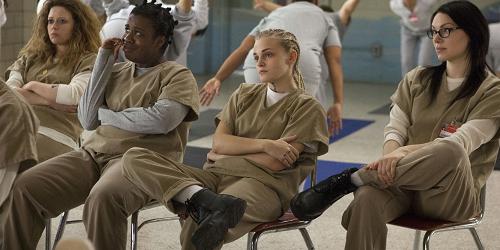
If anything, it’s the writing that eventually does a disservice to Piper by crafting her, over time, into a person whose very presence seems to harm or suffocate everyone around her. She’s not meant to cut a flawless figure by any stretch of the means, but there’s something false about where the show ultimately leaves her before the big, cathartic, final shot of the season. Frankly, Piper’s missteps and transgressions don’t earn the conclusion she reaches here – you’d think she was the series’ villain based on how far she falls – but maybe that’s something to be addressed and rectified in season 2, and besides, these problems don’t sink Orange is the New Black so much as they muddle it every-so-slightly.
The end result is a show so addictive and captivating that one has to wonder if Netflix Instant is slowly becoming the best platform for creative, fresh television programming. That’s another discussion for another time, but the short version is a simple ‘maybe’. It might be more accurate to argue that offerings like Orange is the New Black validate the streaming service’s efforts to produce original content in the first place. Either way, Netflix has a hit on its hands, a dark comedy weighed down with an embarrassment of rich, well-rounded characters that’s punctuated by a sharp indictment of our country’s prison system and its outmoded values and practices; it might not be the new Oz, but it’s the new best TV show that’s not on TV at all.
*Which I’m not going to mention here. If you and I are friends on Facebook, I’ve mentioned it there, but that’s not a professional space for me. Reviews, on the other hand, are, and I refuse to be that gauche in a professional space. Simple as that.
**I never finished watching Weeds. As far as I can recall, I got as far as season five and discovered that I’d exhausted all of my sympathy for Nancy Botwin and gave up. I may now revisit it from the start and see it through to the end to have a better-informed opinion of it as a total series.
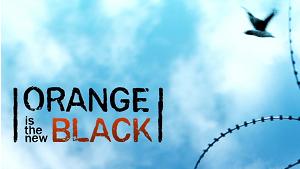
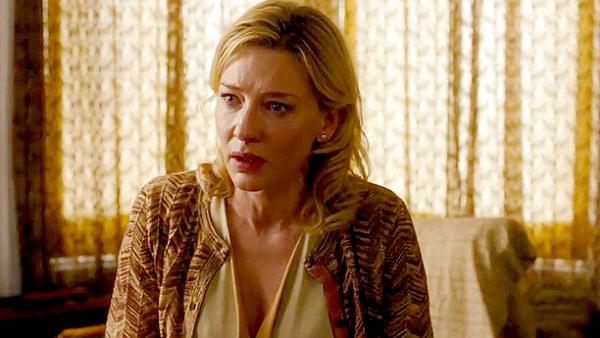


2 Comments
Eric
Great piece, Andrew. I wasn’t entirely sold on this show at first, but it got better with each episode. I ended up burning through it pretty quickly. Can’t wait for season two — I’m curious to see what direction it takes, especially now that Laura Prepon is not going to be a big part of it.
Andrew Crump
Thank you, Eric! Yeah, my wife and I went through the whole series pretty fast. It’s addictive, but that’s just because it’s so damn compelling.
Interesting that Prepon won’t return for S2; I wonder how they’ll make that work in the story.